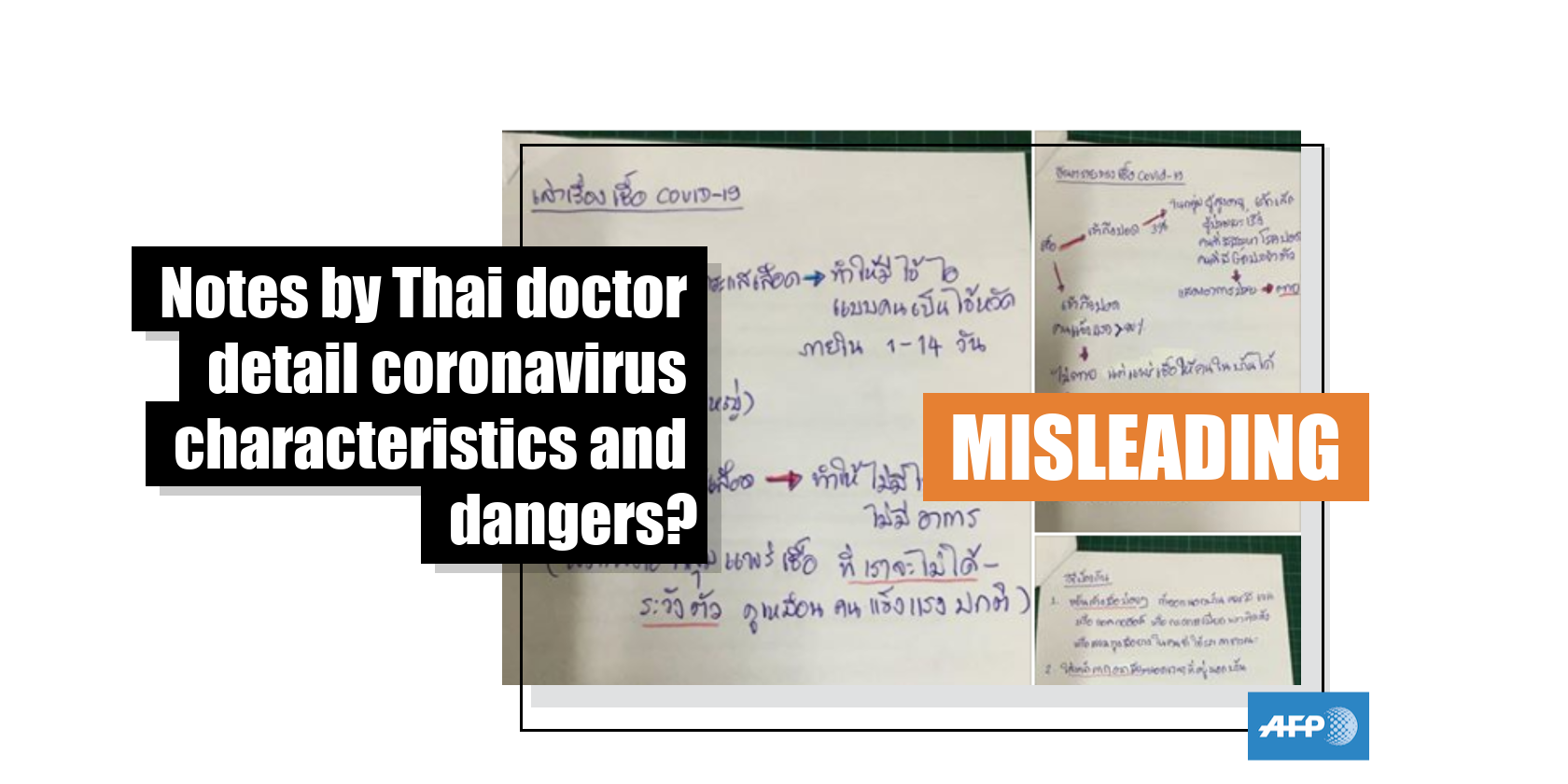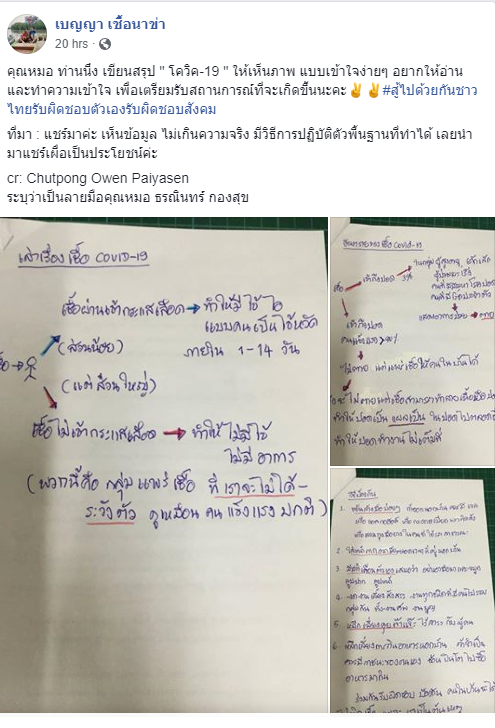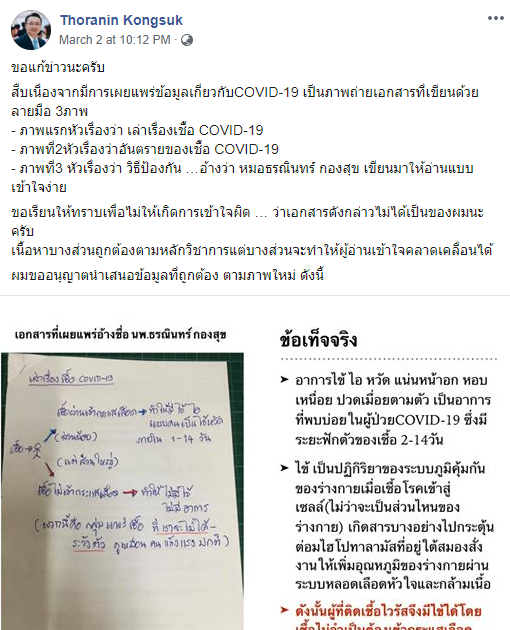
These notes contain multiple inaccuracies about the novel coronavirus -- the Thai doctor named as the source denied writing them
- This article is more than five years old.
- Published on March 9, 2020 at 08:30
- 2 min read
- By AFP Thailand
The photos were published on Facebook here on March 1, 2020. The post has since been shared more than 2,800 times.
Below is the screenshot of the misleading post:

The post’s Thai-language caption translates to English as: “A doctor has written an objective summary of ‘COVID-19’ in an easy way to read. I want you to read and understand it, to prepare for any circumstance that might happen. #FightTogetherThaiPeopleWhoAreResponsibleForTheSociety
"Source: It was shared, I see the information is not far beyond the truth. There is a foundation method that we can do, so I shared it for everyone’s benefits
"cr: Chutpong Owen Paiyasen
"It’s identified as the handwriting of Doctor Thoranin Kongsuk”.
The first photographed document is titled “About COVID-19”. It claims that coronavirus symptoms emerge only after the virus has entered a person’s bloodstream.
The second document is titled “The Danger of COVID-19”. It claims COVID-19 can cause permanent damage to a patient's lungs.
The third photo is titled “Prevention Methods” and details various coronavirus precautionary measures.
The photos were also posted alongside a similar claim on Facebook here, here, here, here, here, here and here.
The claim is misleading.
--Bloodstream claim--
Health experts in Thailand refuted the claim that coronavirus symptoms emerge only after the virus has entered one’s bloodstream.
Dr. Thiravat Hemachudha, the head of the Center for Emerging Infectious Diseases Health Science Center at Chulalongkorn University, explained that while the coronavirus could enter a person’s bloodstream, it is not a factor that will influence respiratory symptoms.
“Respiratory illness symptoms such as coughing or sore throat are the human body’s reactions when it is exposed to coronavirus. These symptoms are signals that there is something abnormal happening in the body,” Hemachudha told AFP by phone on March 5, 2020.
Dr. Hemachudha added that “20 percent of patients who are infected with coronavirus will have severe symptoms, while the other 80 percent will not. However, this group of patients can still spread to others”.
--'Lung damage'--
Hemachudha also said that while the coronavirus can cause permanent lung damage in very severe cases, in many other cases the virus will never reach a patient’s lungs.
Only in the most acute cases, Dr. Hemachuta said, would a patient ever see lung deterioration and subsequent long-term damage.
“Lung infection is the sign that the body has fought with the virus more than necessary, causing the blood vessels to release fluid,” he said.
--Prevention methods--
The photographed document detailing precautionary measures do partially align with official guidelines released by the World Health Organization (WHO), namely washing your hands frequently and not touching your face.
Dr. Thoranin Kongsuk, the doctor cited as the source of the handwritten notes in the misleading posts, denied he wrote the notes in a Facebook post on March 2, 2020.
“I hereby wish to inform your understanding that these documents are not mine,” Dr.Kongsuk posted.
Below is a screenshot of Dr. Kongsuk’s post:

Dr. Kongsuk also told AFP by phone on March 9, 2020: “I didn’t write the document. First of all, that is not my handwriting and that information contains factual inaccuracies.”
Copyright © AFP 2017-2026. Any commercial use of this content requires a subscription. Click here to find out more.
Is there content that you would like AFP to fact-check? Get in touch.
Contact us
